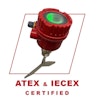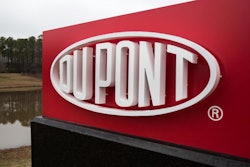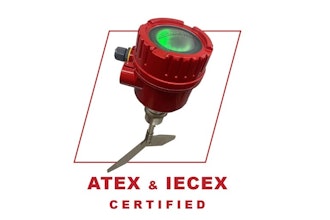
How to Choose Between Generic
and Industry-Specific ERP Systems
Epicor White Paper
How to Choose Between Generic and Industry-Specific ERP Systems
2
Introduction
To run a successful operation, every manufacturing organization needs a modern enterprise
resource planning (ERP) system to boost efficiencies and drive down costs. However, with so
many options available, it can be difficult to make the right choice. If you’re wondering whether
a generic or industry-specific solution is the best fit for your business—or if you’re wondering
how to even start the ERP selection process—you’re not alone.
In this white paper, you’ll discover ways to simplify your ERP selection process, and you’ll learn
the differences between industry-specific and generic ERP solutions.
The ERP System Selection Process
To help simplify the ERP software selection process, follow these eight steps:
1. Evaluate
Form an evaluation committee that includes
top management, functional experts, and
end-users from each department throughout
your organization. During the selection
process, end each step with a consensus of all
members to gain enterprise-wide acceptance
of the final ERP system.
2. Assess
Assess your existing business processes
and the scale of your operation so you can
determine what’s being done well and where
you need to improve. Identify gaps or key
challenges that can be solved with the help of
an ERP system.
3. Establish criteria
Develop selection criteria to evaluate
available solutions. Consider features,
price, platform, ease of use, and other
criteria important to the committee. Criteria
can include manufacturing features such
as traceability, integrated EDI, recipe
or formulation management, bar code
capabilities, integrated production scheduling,
and anything else that’s important to your
manufacturing business. Then, rank your
criteria based on importance.
4. Schedule consultations
Schedule phone consultations with sales
representatives and product experts from as
many different ERP vendors as possible. These
“discovery calls” will provide you with better
insight about each vendor and their solution
beyond what you researched on their website
or through other sources. Be sure they address
cloud and on-premises deployment options.
5. Create a shortlist
Short-list a few ERP solutions that best meet
your business needs. Your discovery calls
should have helped you eliminate solutions
that are poor fits.
6. Make contact
Arrange for each shortlisted vendor
to deliver a live presentation and
product demonstration.
7. Prepare questions
Prepare questions to address your most
important requirements, needs, and concerns.
How each vendor responds to your unique
business challenges will help you determine
the best fit for your company.
8. Check references
Check vendor references by visiting and
consulting with companies that have
implemented the ERP system. Ask if the
system is working as expected, what the
company likes or dislikes, and what value has
been realized since implementing the solution.
If there were issues, explore how the vendor
resolved them.
How to Choose Between Generic and Industry-Specific ERP Systems
3
Generic and Industry-
Specific ERP Systems
While most generic ERP solutions
have modules to handle the non-
manufacturing areas of your business,
these systems often lack key functionality
to handle manufacturing-specific
processes. You can customize a generic
ERP application to fill the gaps, but this
can be time consuming and costly to
implement and maintain.
When an ERP application has
been developed specifically for your
industry, it is better equipped to handle
your manufacturing processes with
minimal or no customization. This means
faster, more affordable implementation
and maintenance.
Furthermore, an industry-specific
ERP module typically offers greater
functionality for your specific business
and operational needs than a generic
ERP package. For example, an integrated
whiteboard-style production scheduling
application allows production planners
to do their job within the ERP system
instead of using manual, offline
spreadsheets.
Manufacturing Industries
Top Challenges
Some manufacturing segments that
benefit from an ERP system built
specifically for their industry include:
X Industrial machinery
An ERP system made for industrial
machinery manufacturing improves
the ability to control and manage the
complete end-to-end process involving
engineering design, procurement, produc-
tion, and assembly of the finished product.
Manufacturers can gain greater visibility
into engineering changes that impact the
quality and cost of their products. Delivery,
installation, and maintenance of the
machines at the customer site is supported
by integrating key aspects—such as con-
figuration control, change management,
and project management—that improve
the overall quality, speed, and productivity
while reducing delivery risks and costs.
X Fabricated metals
In order to meet just-in-time inventory
needs, metal fabricators are investing in
machinery to minimize manufacturing
lead times. Shorter manufacturing times
can improve cash flow by reducing
finished goods inventories. Metals
fabricators can cut lead times by investing
in advanced setup and quick changeover
technologies, as well as industry-specific
ERP software.
X Electronics and high-tech
For manufacturers of high-tech products,
coordination of information across
the extended supply chain is critical in
effectively meeting changing customer
demand cycles. Successful supply chains
require good communication across all
participants and throughout all supply
chain processes. Early indicators and
communication of changes in demand,
sourcing, and manufacturing capacities
enable supply chain partners to coordinate
and address the changes in a cost-
effective manner. ERP technologies built
for high-tech manufacturers help improve
collaboration and reduce disruptions to
delivery with real-time information and
impact analysis.
X Medical devices
Manufacturers who focus on medical
devices see additional challenges in
regulatory compliance and the high cost
of product development. As a result,
supply chain visibility and validation—
alongside traceability in production—are
critical. Furthermore, this industry has
software validation requirements. An ERP
solution with features and processes to
address the unique challenges of medical
device manufacturing is key.
Generic ERP Systems With
Vertical Extensions
While generic ERP systems may have partners
that provide front-end packages that target
various industry verticals, consider how
well the front-end package integrates with
the generic ERP and your existing systems.
Multiple systems require synchronization and
ongoing maintenance.
Consider the industry expertise and experience
of the partner that provides the front-end
packages. How well this type of vendor
understands your industry, the existence of a
strong user base, and the vendor’s ability to
develop and maintain the applications are all
vitally important.
Dealing with multiple software vendors can
be a headache, so make sure it’s clear who
is responsible for resolving software issues
when they arise. Lastly, identifying who is
responsible for support if the vendors end
their partnership is extremely important.
About Epicor
Epicor Software Corporation drives business growth. We provide flexible, industry-specific software that is designed around the needs of our
manufacturing, distribution, retail, and service industry customers. More than 45 years of experience with our customers’ unique business
processes and operational requirements is built into every solution—in the cloud or on premises. With a deep understanding of your industry,
Epicor solutions spur growth while managing complexity. The result is powerful solutions that free your resources so you can grow your
business. For more information, connect with Epicor or visit www.epicor.com.
Contact us today [email protected] www.epicor.com
The contents of this document are for informational purposes only and are subject to change without notice. Epicor Software Corporation makes no guarantee, representations, or warranties with
regard to the enclosed information and specifically disclaims, to the full extent of the law, any applicable implied warranties, such as fitness for a particular purpose, merchantability, satisfactory quality,
or reasonable skill and care. This document and its contents, including the viewpoints, dates, and functional content expressed herein are believed to be accurate as of its date of publication, July 2018.
The results represented in this testimonial may be unique to the particular user as each user’s experience will vary. The usage of any Epicor software shall be pursuant to the applicable end user license
agreement, and the performance of any consulting services by Epicor personnel shall be pursuant to applicable standard services terms and conditions. Usage of the solution(s) described in this document
with other Epicor software or third-party products may require the purchase of licenses for such other products. Epicor and the Epicor logo are registered trademarks or trademarks of Epicor Software
Corporation in the United States, certain other countries and/or the EU. All other trademarks mentioned are the property of their respective owners. Copyright © 2018 Epicor Software Corporation.
All rights reserved.
How to Choose Between Generic and Industry-Specific ERP Systems
Conclusion
Implementing a new ERP solution is a big task. Make sure you have the right people
involved from your organization, and spend some time developing relevant selection
criteria to meet your business objectives. While you can choose between a generic or
industry-specific ERP system for your business, an integrated ERP system specific to your
industry will be better equipped to handle your manufacturing requirements. Industry-
specific solutions are implemented faster and are less expensive to install and maintain.
Although generic ERP system vendors may have software partners who offer front-end
packages that target industry verticals, you should consider the issues of dealing with
multiple vendors. Finally, you can increase your chances of a successful project by selecting
a vendor that can partner with you long term, understands the unique requirements of
your industry, and can provide a variety of cloud or on-premises deployment options to fit
your needs.






















